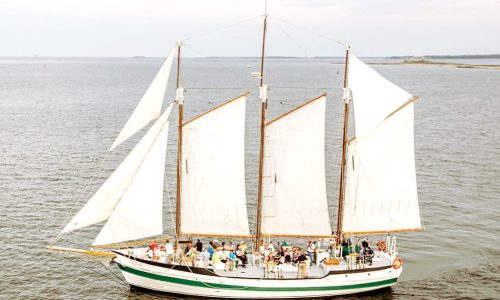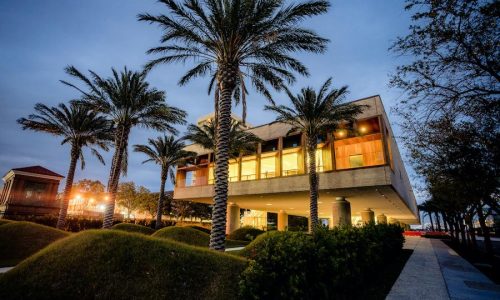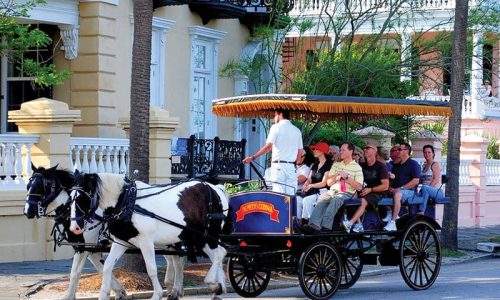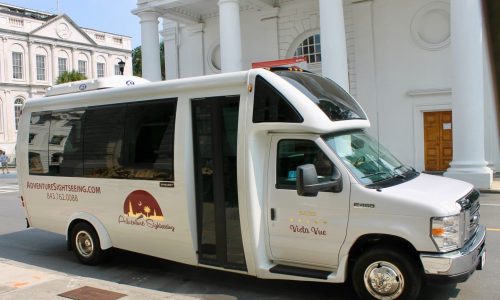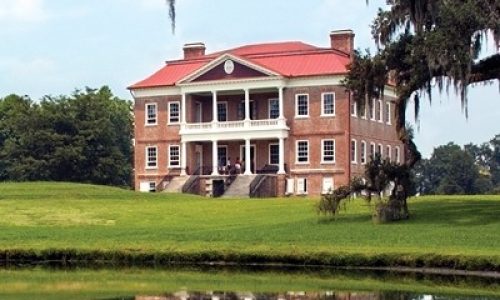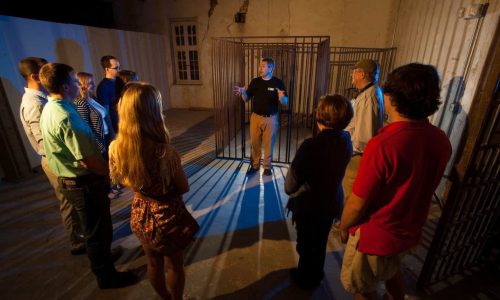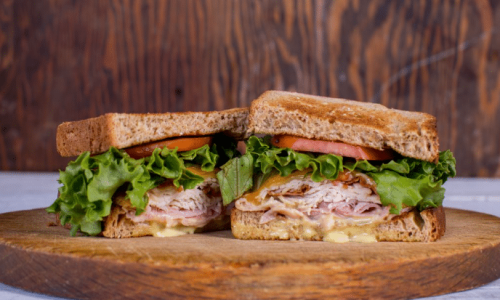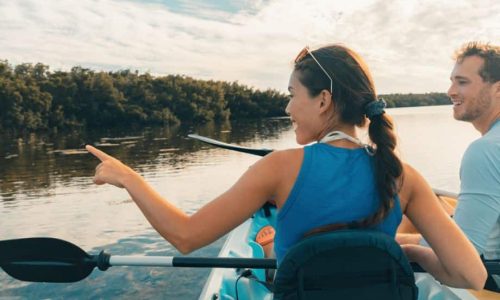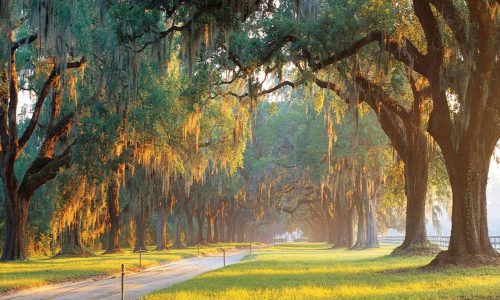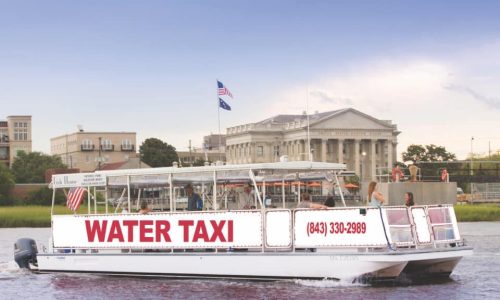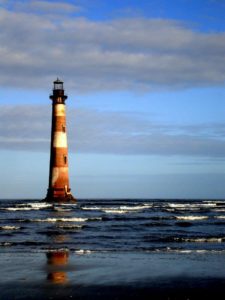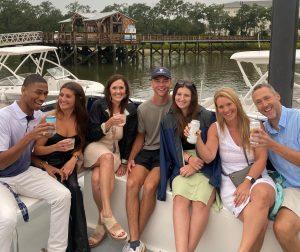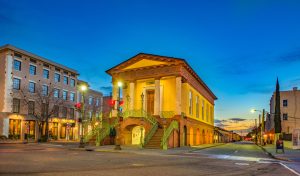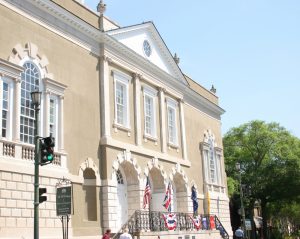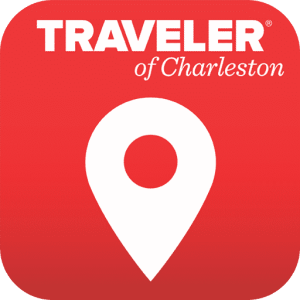by Lauren B. Johnson
With its temperate climate, fertile soil, and coastal geography, the Lowcountry cultivated more than 300 plantations beginning in the 17th century. Today, a mere handful operate as public sites for exploration, education, and reflection. While all boast stunning beauty and complex history, each has a distinct character. Here, we’ll help you choose the best plantation destination for your vacation.
Boone Hall Plantation
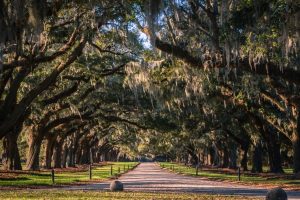
Stop by Willie’s Roadside Market at Boone Hall Farms to stock up on fresh fruits and veggies from this continuously working farm, which has produced crops for more than 320 years.
Summary: Food available, Gardens, Tram/Train tour, House tour, Animals onsite, Gift shop
Drayton Hall
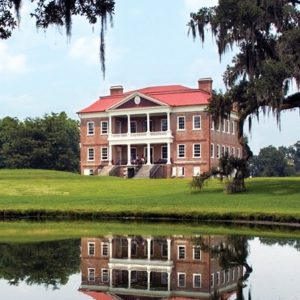
Constructed in 1738, this National Historic Landmark remains the country’s oldest unrestored plantation house open to the public. Having withstood seven generations of devastating wars and natural disasters, the antebellum manse allows preservation buffs an inside look at a rare early example of Georgian Palladian architecture. After immersing yourself in the unique period construction, take a quiet moment within the largest documented African-American cemetery in North America, then stroll along the outdoor walks to soak in the ancient live oaks, broad river vistas, and lovely courtyard garden. draytonhall.org
Delve into conservation efforts at a state-of-the-art lab that lets guests witness preservation work on materials and artifacts uncovered by ongoing archeological excavations.
Summary: Food available, Garden, House tour, Gift shop
Middleton PLace
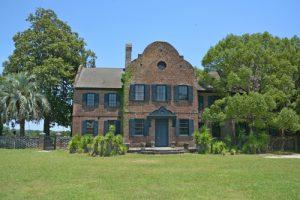
Travel back to the 18th and 19th centuries at America’s oldest landscaped gardens. Across 110 acres on the Ashley River, this National Historic Landmark immerses visitors in the lives of the Middletons (including two founding fathers) and generations of enslaved people. Grand garden rooms lead to an iconic terraced lawn and the surviving portion of the residential complex, built in 1755 as guest quarters and now a museum. Experience working plantation life in the stableyards, where interpretive blacksmiths, carpenters, potters, and seamstresses demonstrate their crafts. Alongside the “Beyond the Fields” exhibit at a Reconstruction-era freedman’s cottage, these presentations offer an in-depth examination of the lives and work of the nearly 3,000 men, women, and children enslaved by the Middletons. middletonplace.org
Treat yourself to a traditional Lowcountry meal at the Middleton Place Restaurant, which serves produce from the on-site farm and gardens.
Summary: Food available, Gardens, Tram/Train tour, House tour, Animals onsite, Gift shop
McLeod Plantation Historic Site
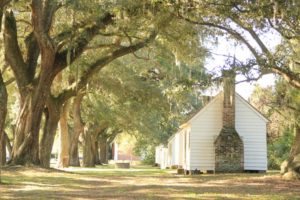
Home to a 600-year-old grand oak known as the Wisdom Tree, McLeod Plantation exists to impart an accurate understanding of this cotton plantation’s role in the larger institution of American slavery. Charleston County Parks & Recreation opened the award-winning preservation site in 2015 to intentionally share the stories of heartbreak and hope surrounding the enslaved people who lived and died here. Admission to the 37-acre site includes guided and self-led tours that focus on the transition to freedom for generations of enslaved Africans. In addition to the restored slave quarters, visitors may tour the first floor of the main house, constructed in 1851. ccprc.com
Download the “McLeod Plantation: Transition to Freedom” app to hear the differing perspectives of the people who lived and worked on this Sea Island cotton plantation.
Summary: House tour, Gift shop
Magnolia plantation

Outdoor opportunities abound at this 17th-century estate, home to America’s oldest gardens. Whether on foot, by bike, or aboard the Nature Train, explore miles of paved and gravel trails around the property’s four-season gardens, swamps, and forests. A tour of the current Magnolia House, built in 1870 after two previous houses succumbed to fire, focuses on late-19th-century family life. And inside the restored cabins that once housed enslaved laborers and garden staff, the “From Slavery to Freedom” tour ventures into the 350-year history of this former rice plantation. Other must-see stops include the Audubon Swamp Garden, where blackwater boardwalks weave through tupelo trees and cypress knees, and the wildlife center, featuring pigs, peacocks, foxes, reptiles, and other local critters. magnoliaplantation.com
Reserve a boat tour ticket to witness gators, herons, egrets, eagles, and more marsh dwellers in their natural habitat as you motor along former rice fields aboard a shady pontoon.
Summary: Food available, Tram/Train tour, House tour, Boat tour, Animals onsite, Bikes allowed, Gift shop
Charleston Tea Garden
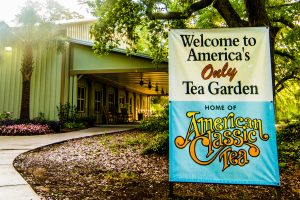
Nestled on rural Wadmalaw Island, America’s only tea garden is steeped in unique experiences. Inside the air-conditioned glass gallery that runs the length of the production facility, visitors have the chance to see the factory in action and learn about the equipment and processes involved with making tea. Purchase tickets for the 45-minute trolley tour to dig into the 127-acre grounds and see some 320 varieties of Camellia Sinensis bushes, which bloom as early as August and into October, as well as explore the state-of-the-art greenhouse. From Earl Gray to green, sip endless full-size samples of various Charleston Tea Garden brews, which are produced with a larger leaf to give a smooth, fresh-from-the-farm taste. Admission to the factory and gardens is also free. charlestonteagarden.com
Don’t miss the climate-controlled greenhouse, where farmers propagate tea plants with cuttings from existing plants using technologically advanced methods.
Summary: Gardens, Tram/Train tour, Gift shop
Hampton Plantation Historic Site
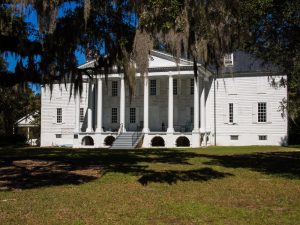
This National Historic Landmark protects the remnants of a colonial-era rice plantation along the Wambaw Creek in rural McClellanville. With the self-guided Enslaved Settlement Trail, the interpretive site follows the history of enslavement and rice cultivation through the Civil War and beyond to emancipation. Along the way, discover the archeological ruins of skilled artisan homes, the unearthed foundation of a slave dwelling, and the kitchen building from the early 18th-century property. The 274-acre site boasts four acres of “wild gardens,” a two-mile nature trail circling abandoned rice fields, ancient Magnolia trees, and a temple-front mansion that was last home to South Carolina poet laureate Archibald Rutledge. southcarolinaparks.com/hampton
Keep a lookout for the unique and endangered red-cockaded woodpecker and swallow-tailed kite while walking the quiet nature trail, an ideal place for birding.
Summary: Gardens, House Tour and Gift Shop
Cypress Gardens
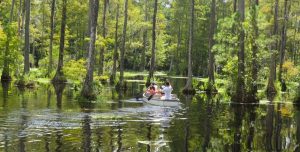
As the famed film site for Swamp Thing as well as historical flicks including Cold Mountain, The Noteboook, and The Patriot, Cypress Gardens has hosted many celebrities since its creation in YEAR. And the drama continues with swamp boat rides that wind among tall bald cypress and tupelo trees, wooded trails along original dikes from the rice-growing era, and a lush greenhouse filled with butterflies and an observation beehive. Be sure to slither over to the “Swamparium” as well for the chance to view native fish, amphibians, and reptiles as well as African crocodiles and a South American anaconda. cypressgardens.berkeleycountysc.gov
Sign up for a swamp boat ride (guided or self-guided) upon arrival, as boats are subject to availability and you’ll want to take in this unique black water trail.
Summary: Gardens, Boat Tour, Animals Onsite and Gift Shop

